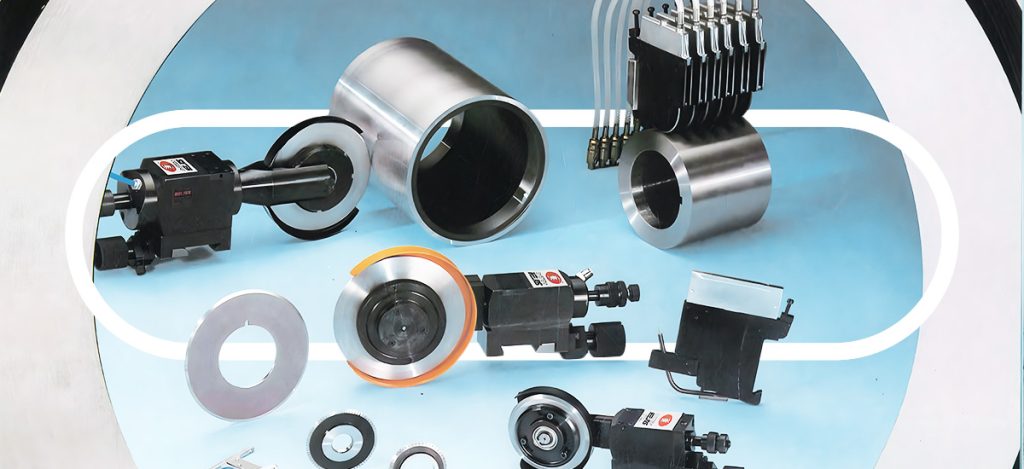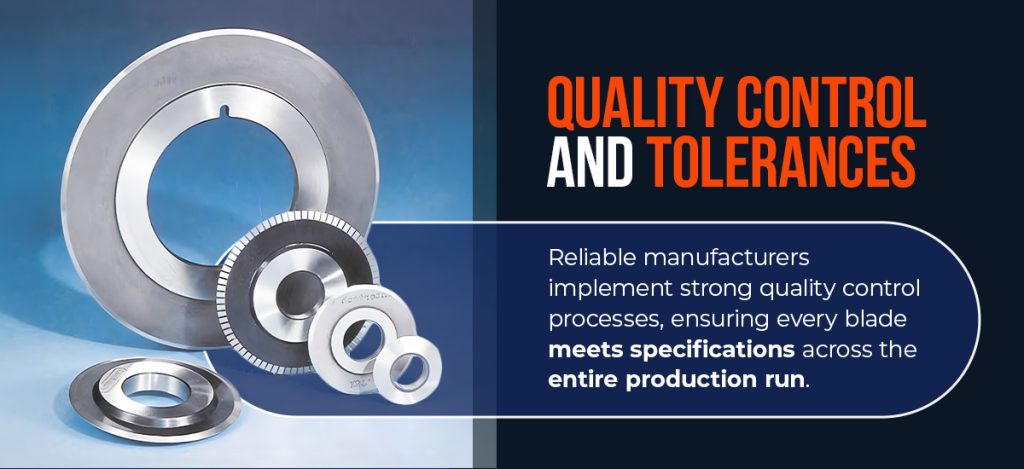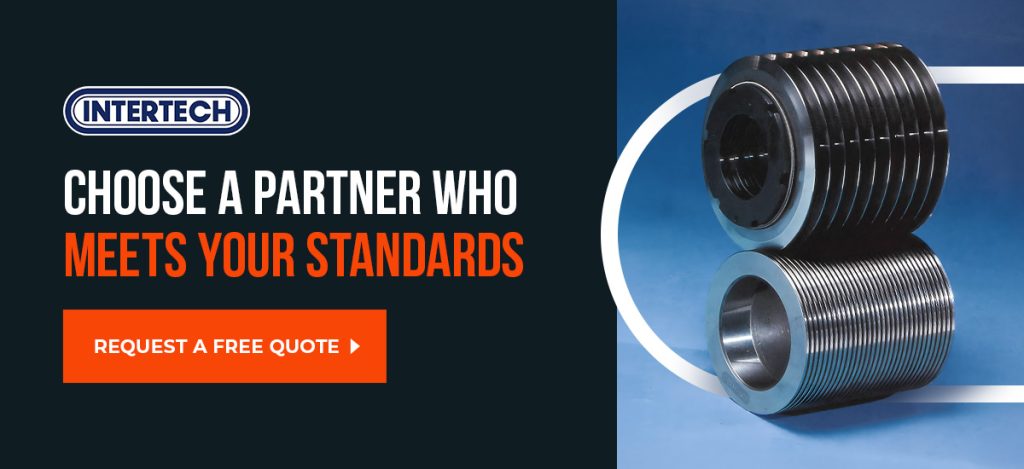
Choosing the right industrial knife manufacturer is a strategic partnership that goes beyond a simple purchasing decision. The precision, durability and performance of your blades directly impact the quality of your operations.
Whether you’re cutting nonwovens, paper, foil, rubber or plastic, the right manufacturer is essential for product quality and overall efficiency. Below, we explore the key factors to keep in mind when searching for an industrial knife manufacturer so you can make an informed decision for your operation’s needs.
How to Find the Best Industrial Knife Manufacturers
Finding the best industrial knife manufacturer starts with evaluating their ability to act as more than just a blade supplier. The top manufacturers serve as engineering partners. These companies work closely with your team to understand your cutting process, the materials you’re converting and the performance challenges you face. They offer in-depth knowledge of different materials, advising you on the optimal grade of tool steel, ideal geometry and specialty coatings that can extend blade life.
Beyond their technical expertise, look for clear signs of professionalism and manufacturing maturity, including:
- In-house engineering expertise: This is essential for problem-solving, blade prototyping and collaborative design.
- Responsive and knowledgeable support: Clear communication from quoting to production and delivery helps everyone stay on the same page.
- Quality systems: The manufacturer should have robust inspection protocols, traceability and tight tolerance documentation.
- A strong client portfolio: Working with respected companies in your industry shows real-world reliability.
- Consistent output at scale: The manufacturer needs to demonstrate the ability to maintain quality products across orders.
7 Things to Look for in a Knife Manufacturing Company
Evaluating potential knife manufacturing partners should involve more than skimming through the product catalog. The right manufacturer will check several critical boxes.
1. Blade Materials
One of the most important decisions in blade manufacturing is the choice of material. The right steel composition determines how long a blade lasts and how well it performs under pressure.
Every blade needs to strike the right balance between hardness and toughness. Hardness refers to how dense and wear-resistant the blade material is. The harder the material, the better it resists dulling and deformation. On the other hand, toughness is a material’s ability to absorb impact and resist fracture over time, especially when cutting abrasive materials.
2. Blade Profiles and Cutting Technologies
A reliable knife manufacturer should be able to match the correct blade profile to your specific cutting method, machine setup and production goals. Industrial knife profiles vary depending on the material being processed and the type of cut required.
Some of the most common blade technologies used in the industry include:
- Circular blades and knives: These are designed for continuous motion, making them ideal for high-volume applications where precision and durability are essential.
- Shear cut systems: These are often used when material thickness or strength demands a cleaner and scissor-like cut.
- Pneumatic knife holders: These improve both cut precision and operator safety. They allow for consistent blade pressure and stable positioning at high speeds.
3. Customization Capabilities
Off-the-shelf blades don’t always meet the mark in high-performance environments. A manufacturer’s ability to deliver custom solutions strongly indicates their technical expertise and customer focus. True customization, from edge geometry to tolerance specs, ensures your blades are optimized for your material, equipment and production goals.
Manufacturers with in-house engineers and precision machinists can rapidly prototype, adjust and scale your blade designs without sacrificing lead time or performance. This is especially valuable when launching new products or improving line inefficiencies.
4. Precision Manufacturing Standards
The best knife manufacturers invest in advanced equipment and processes that support repeatable, high-accuracy production. Leading manufacturers support:
- Custom edge angles.
- Tailored dimensions.
- Specialized coatings.
5. Quality Control and Tolerances

In high-throughput slitting or converting operations, even the slightest deviation can compromise a cut, misalign a machine or introduce inefficiencies. Reliable manufacturers implement strong quality control processes, ensuring every blade meets specifications across the entire production run.
Key indicators of a good-quality system include:
- In-process inspections: Continuous checks during production to identify and correct deviations in real time.
- Tight tolerance validation: Precise measurement of critical dimensions using calibrated tools.
- Traceable documentation: Each blade is tied to its material batch and machining history, ensuring full accountability.
6. Flexible Order Volumes and Lead Times
Flexibility is essential during new product launches. Whether you’re testing or scaling, you need a supplier who can accommodate:
- Prototypes and small runs.
- High-volume production.
- Quick turnaround without compromising quality.
7. Proven Track Record and Industry Reputation
Partnering with a company that has a solid track record provides added confidence in their ability to deliver. A manufacturer with a strong reputation is more likely to take ownership of the process, respond promptly to feedback and stand behind their work. Look for signs of reliability, such as repeat clients, a long-standing presence in the industry and case studies that show real-world applications.
Frequently Asked Questions
Get your pressing questions about industrial knife manufacturers answered.
1. Who Are the Best Knife Manufacturers?
The best manufacturers offer more than blades. They provide engineering support, material expertise and consistent quality. Look for tight-tolerance production, application-specific recommendations and a reputation for on-time delivery.
2. How Do I Know if a Manufacturer Can Meet My Blade Specifications?
The best approach is to request technical drawings, tolerancing capabilities and, if possible, sample blades. A manufacturer should be transparent about their machining limits, inspection processes and material sourcing.
3. What Are Some of the Most Common Blade Types Used in Slitting and Converting?
Blade selection depends on material type, cut quality requirements and machine configuration. Common types include:
- Circular knives for continuous slitting.
- Shear blades for clean, scissor-like cuts.
- Score blades for crush cutting.
- Razor blades for precise slicing of thin films.
4. Can I Order Custom Industrial Blades in Small Quantities?
Yes. Many manufacturers support low-volume production, especially for prototyping or process optimization. Small-batch custom orders can be used during line setup, production development or when testing different materials or coatings.
Choose a Partner Who Meets Your Standards
Finding the right knife manufacturer is about more than specifications and steel. It’s about trust, reliability and a shared commitment to precision.
At Intertech Precision, we have decades of experience working with engineers and buyers to deliver tailored solutions that improve output and reduce downtime. We can provide you with custom solutions designed to minimize downtime and deliver cleaner cuts. Whether you’re exploring new coating options, upgrading blade materials or refining cut geometry, we’re ready to help. Request a free quote today and see how a true partner can help elevate your operation.

